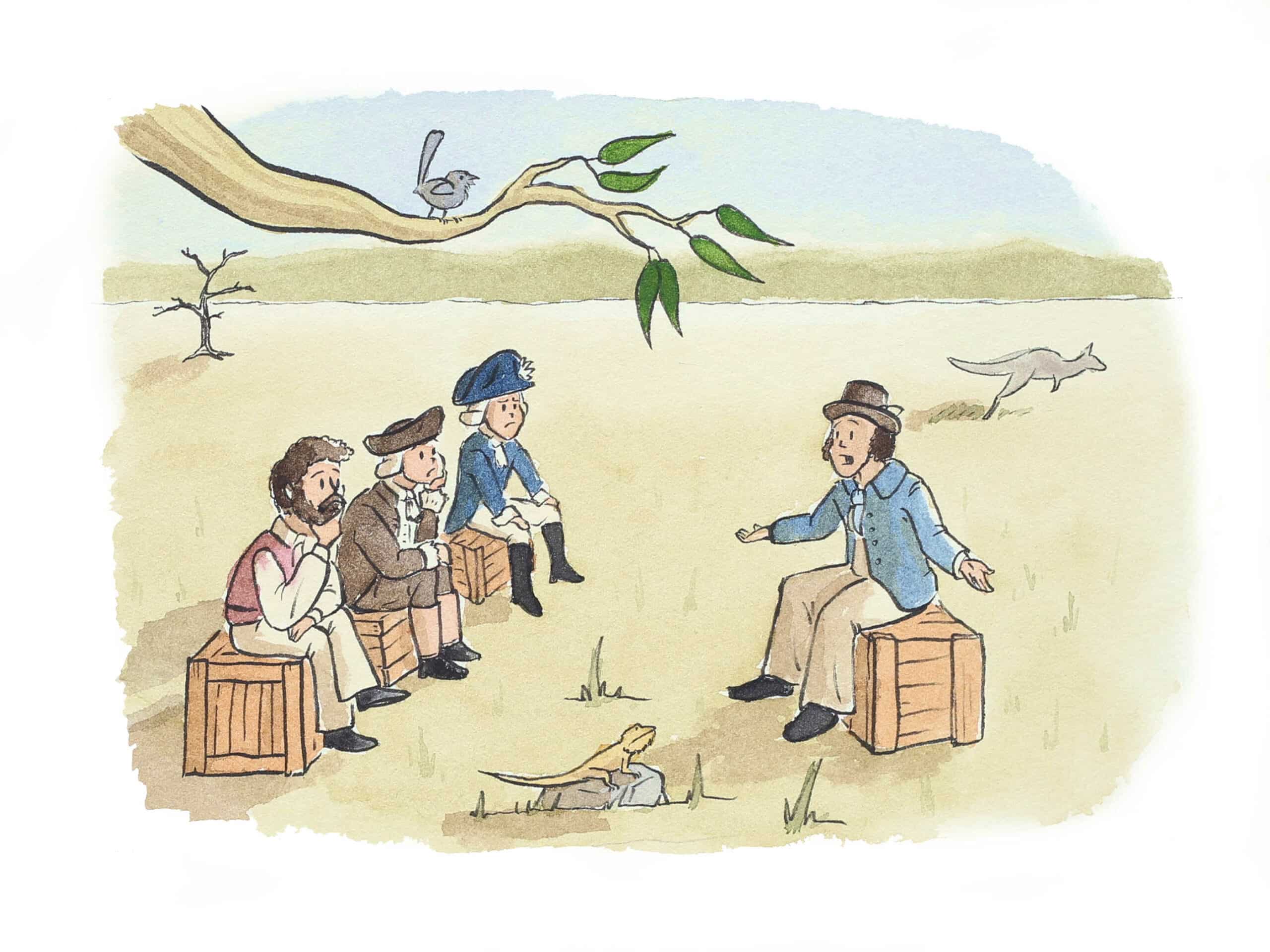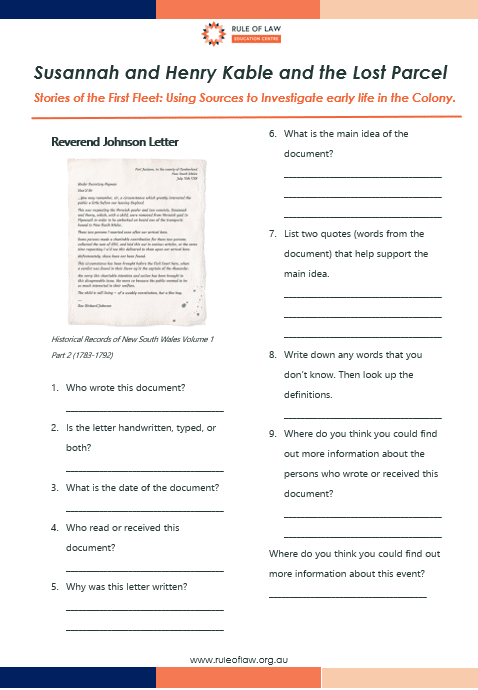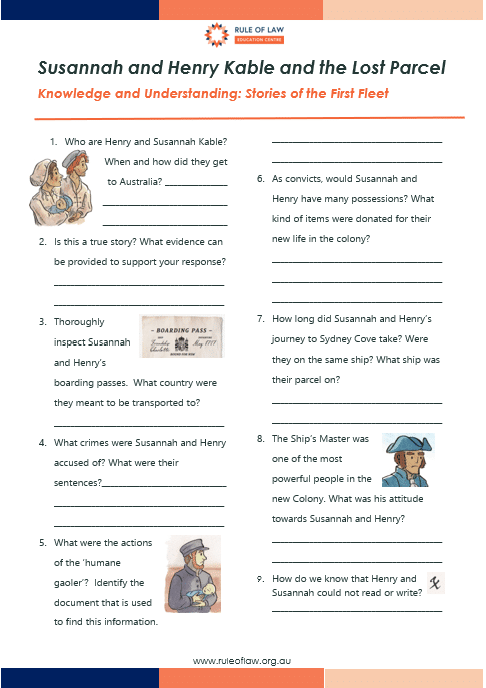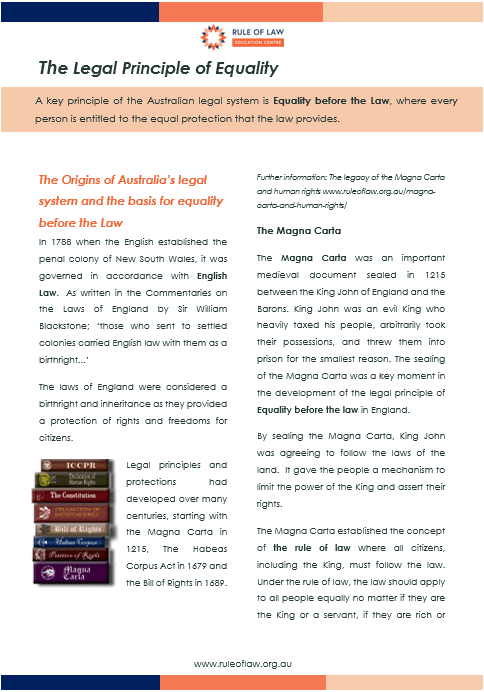Cable v Sinclair
Cable v Sinclair [1788] NSW KR 7, Court of Civil Jurisdiction Proceedings
Warrant
Museums of History NSW – State Archives Collection: Court of Civil Jurisdiction; NRS-2656, Rough minutes of proceedings, 1788-1809. [2/8147] pp 1-2 Henry and Susannah Cable – Duncan Sinclair, 1 July 1788
Whereas Henry Cable and his Wife, new settlers of this place, had before they left England a Certain parcel shipped on Board the Alexander transport Duncan Sinclair Master, Consisting of Cloaths and several other Articles suitable for their present Situation, which were Collected and Bought at the Expence of many charitable disposed Persons for the Use of said Henry Cable, his wife and Child. Several applications have been made for the express purpose of obtaining the said parcel from the Master of the Alexander now lying at this port, and without effect (save and except) a small part of the said parcel Containing a few books, the residue And remainder, which is of more Considerable value still remains on Board the said Ship Alexander, the Master of which, seems to be very Neglectful in not Causing the same to be Delivered, to its respective owners as aforesaid -Henry Cable and Susannah Cable his wife most humbly prays you will be pleased forthwith to Cause the said Duncan Sinclair, Master of the Alexander aforesaid, to Appear before you to shew Cause why the Remaining Parcel is not duly and Truly delivered in that ample and beneficial a manner as is Customary in the delivering of goods. And also humbly prays you will on Default of the Parcel not being forthcoming take and use such Lawful and Legal means for the recover or Value thereof, as your Honour shall think most expedient.
Signed by the hands of the said
Henry Cable and Susannah Cable
his wife this First Day of July in
the year of our Lord 1788
Henry Cable X
Susannah Cable X

Classroom Activity
Using the Court Documents, students can complete this activity sheet to learn all about the First Civil Case in New South Wales. Click here
Depositions
![NRS-2656-[2-8147] Court of Civil Jurisdiction 1788-1809 Rough mintutes of proceedings Cable v Sinclair p3](https://www.ruleoflaw.org.au/wp-content/uploads/NRS-2656-2-8147-Court-of-Civil-Jurisdiction-1788-1809-Rough-mintutes-of-proceedings-Cable-v-Sinclair-p3.png)
At a Civil Court of Jurisdiction
held by order of His Excellency
the Governor 1st of July 1788
The Judge Advocate
The Rev Mr Richard Johnson
John White esq.
His Majesty’s Patent for establishing the Court of Civil Jurisdiction was read. His Excellency ‘s Order for its assembling an appointment of the members, were also read.
And the Council duly sworn
Henry Cable, Labourer came before the said Court of Civil Jurisdiction, with complaint against Duncan Sinclair, Master of the Alexander Transport, stating that a Parcel consisting of Cloaths and several other articles were shipped for the Use of him, his Wife and Child, on board the said Ship, before they left England.
And that several Applications have been made by him for obtaining the said Parcel from the said Duncan Sinclair but without Effect to the great detriment of himself, his Wife and Child praying that the said Duncan Sinclair may be summoned to appear to show Cause why the said Parcel is not forthcoming; or to make restitution of the Value thereof, which the said Henry Cable made Affidavit was to the Amount of 15 pounds or thereabouts.
The Court issued a Warrant under the Hand and Seal of the Judge Advocate, to the Provost Marshall, commanding him to bring the said Duncan Sinclair before the said Court, at Five of the Clock on the Evening of the 2nd of July, to answer the said Complaint.
And the court adjourned until tomorrow, four in the Clock in the Afternoon.
David Collins JA
Cumberland to wit 1st of July 1788
I Henry Cable do make oath that to the best of my knowledge and belief, the value of the cloaths and other articles contained in the parcel directed for me, and shipped for my use on board the Alexander transport, Duncan Sinclair Master lying in the River Thames in December 1786 was £15 or thereabouts.
Sworn before me One of his Majesty’s Justices
David Collins JA
![NRS-2656-[2-8147] Court of Civil Jurisdiction 1788-1809 Rough mintutes of proceedings Cable v Sinclair p5](https://www.ruleoflaw.org.au/wp-content/uploads/NRS-2656-2-8147-Court-of-Civil-Jurisdiction-1788-1809-Rough-mintutes-of-proceedings-Cable-v-Sinclair-p5.png)
Cumberland to wit 1st of July 1788
Whereas Information and Complaint hath been made to the Court of Civil Jurisdiction for the Territory of New South Wales, assembled in Sydney Cove, in the County of Cumberland, in the Territory aforesaid, by Henry Cable, Labourer, of the County aforesaid, stating, that a Parcel consisting of Cloaths and other Articles, to the value fifteen pounds, or thereabouts (of which the said Henry Cable hath made Oath before the Judge Advocate of the Territory aforesaid) was shipped for the use of him, his Wife, and Child, on board the Ship Alexander, Duncan Sinclair, Master, in December, 1786; that said Ship then lying in the River Thames, in the County of Middlesex, in the Kingdom England; and that several Applications had been made for obtaining the said Parcel from the said Duncan Sinclair, but without Effect, and praying the restitution of the said Parcel, or the value thereof, might be made by the said Duncan Sinclair. These are therefore to require you to bring the said Duncan Sinclair, before the said Court of Civil Jurisdiction, at four o’clock in the Afternoon of the Second of July to answer to the said Information and Complaint, and to be further dealt with according to law.
And be you then there, to satisfy what you shall have done with the Provisions. Here in fail you not. Giving under my Hand and Seal at Sydney Cove in that County of Cumberland, this first Day of July, in the Year of our Lord, One thousand, seven hundred and eighty eight- and in the Twenty Eighth of His Majesty’s reign.
David Collins
Judge Advocate
![NRS-2656-[2-8147] Court of Civil Jurisdiction 1788-1809 Rough mintutes of proceedings Cable v Sinclair p4](https://www.ruleoflaw.org.au/wp-content/uploads/NRS-2656-2-8147-Court-of-Civil-Jurisdiction-1788-1809-Rough-mintutes-of-proceedings-Cable-v-Sinclair-p4.png)
2nd of July 1788
The Court met according to Adjournment and adjourned over again to four of the Clock on Saturday the 5th Instant.
5th of July 1788
The Court again met according to Adjournment.
The Provost Marshall at 4 o’Clock, came before the Court with the Writ and Duncan Sinclair, Master of the Alexander Transport.
The Complaint of Henry Cable was read to the said Duncan Sinclair, who joined issue on the Business.
![NRS-2656-[2-8147] Court of Civil Jurisdiction 1788-1809 Rough mintutes of proceedings Cable v Sinclair p7](https://www.ruleoflaw.org.au/wp-content/uploads/NRS-2656-2-8147-Court-of-Civil-Jurisdiction-1788-1809-Rough-mintutes-of-proceedings-Cable-v-Sinclair-p7.png)
The Deposition of William Aston Long
First Mate of the Alexander Transport,
Duncan Sinclair Master
William Ashton Long, desposes, that on the 25th of December of 1786, a Parcel came on board the Alexander Transport, directed to Susannah Holmes, or otherwise Cable. That the parcel was sewn up in Hessian Matting. That the whole might weigh about twenty-five Pounds: that on receiving it, he sent it down in the gun room. The receipt of the Parcel was known to several People in the Ship. That Duncan Sinclair was the Master of the Ship, but at that Time in London. That before the Ship left England, he made Enquiry on board the Lady Penrhyn, if the Person to whom the Parcel was addressed was in that ship. That he was answered in the negative. That at the Cape of Good Hope on the Master’s Enquiry for the Parcel, it was looked for and said to be found. That the Delivery of it was countermanded then, and put off until the Arrival of the Expedition at New South Wales. That on her Arrival there, the Owner of the Parcel, as well as several others, applied for the Delivery of the Parcel, but it could not be found.
The Deponent further desposes, that in the Passage of the Ship from the Downs to the Portsmouth, a Number of Books had fallen from the Parcel, the Matting have been broken. That he took them up, and made a separate Parcel of them. That he took them into his Cabin, where they remained for some time, until the Cabin being locked and having no dry Place to put them in, he sent them down below into the Gun room, and that on Enquiry at New South Wales for the Parcel, that of the Books only could be found.
Wm Aston Long

Thomas Trimmings, being duly sworn, desposes that he remembers being directed by the Mate of the Ship to look for the Parcel directed for Susannah Holmes, otherwise Cable. That he remembers also that at the Cape Sea betwix Teneriffe and Rio de Janeiro, he saw the Parcel. That he then put it, with several other Parcels belonging to the Convicts, down the scuttle into the After Hold of the Ship. That the Ships Company were allowed to have Access to the After Hold. That some of the Convicts sometimes were allowed to go backwards and forwards into the Gunroom. That at Botany Bay, he delivered out the greater part of the Parcels he put into the gunroom, but did not see any thing of that containing the Cloaths. He saw only the Books. That at the Cape of Good Hope he was desired to look for the Parcel but could not find it.
The mark of x Thomas Trimmings

John Hunter esq being sworn, deposes, that at the Cape of Good Hope, Application was made to him by His Excellency Governor Phillip, to cause Inquiry to made for the Parcel on board the Alexander. That he immediately applied to Duncan Sinclair, desiring him to search for the Articles. That the said D Sinclair, said he would cause Search to be made to be forthwith made. That some after time the Master D Sinclair acquainted him that one of the Parcels was found, and he did not doubt but the other would be found- but that the After Hold was in such a disturbed State, it was almost impossible to look for it. That this Deponent told Captain Sinclair, that as long as the Parcel was safe it was very well, and to deliver it at Botany Bay.
John Hunter
The Court found a Verdict for the Plaintiff, to the Value stated by him in the Complaint.
David Collins
Judge Advocate.

Education Resources
The Rule of Law Education Centre has written a storybook that tells the true story of Henry and Susannah Kable and their fight for justice over their parcel lost on the First Fleet.
Aligned with the Australian Curriculum Civics and Citizenship and History strands, this storybook is for families and schools to help understand the principles of justice, fairness, equality and the rule of law.

Summary of the Case of Susannah and Henry Kable
Even though Susannah and Henry were poor convicts who could not read or write, they were able to use the justice system to restore their loss and sue the powerful Ship’s Captain. This resource provides a summary of the case and outlines the key evidence given during the trial.
Stories of the First Fleet: Knowledge and Understanding
Using short answer questions, this resource uses the book ‘The Lost Parcel’ to investigate the lives of two convicts Henry and Susannah Kable, their reasons for transportation with the First Fleet, the attitudes of the English community to their plight and their experiences in the early colony.
Stories of the First Fleet: Investigating Source Documents
This resource uses two source documents, a letter from Reverend Richard Johnson, and the Charge Sheet from the NSW Court of Civil Proceedings (see below) to investigate the lives of Henry and Susannah Kable and their experiences with the legal system in the early colony.
Timeline
Using details from the Lost Parcel or their own research, students can complete this timeline.
Write your own play or narrative
This activity helps students create a play or narrative story to deepend their understanding of the story of Henry and Susannah and their lost parcel.
Origins of Australia's Legal System and Equality before the Law
In 1788 when the English established the penal colony of New South Wales, it was governed in accordance with English Law. Legal principles and protections had developed over many centuries, starting with the Magna Carta in 1215, The Habeas Corpus Act in 1679 and the Bill of Rights in 1689. Click here to learn more.

Acknowledgements
The Lost Parcel was written by the team at the Rule of Law Education Centre: Robin Speed, Sally Layson, Leanne Davis, Justine Hanks, Aaron Martano, Heidi Windybank and Katherine Layson.
Concepts have drawn from ‘The Rule of Law in a Penal Colony’ by David Neal, the works of Professor Martin Krygier, ‘Damned Rascals? A chronicle of Henry and Susannah Kable’ by Paul Kable and June Whittaker and assistance from Bill Kable.
This project is supported by Create NSW’s Cultural Grant Program, a devolved funding administered by the Royal Australian Historical Society on behalf of the NSW Government.













